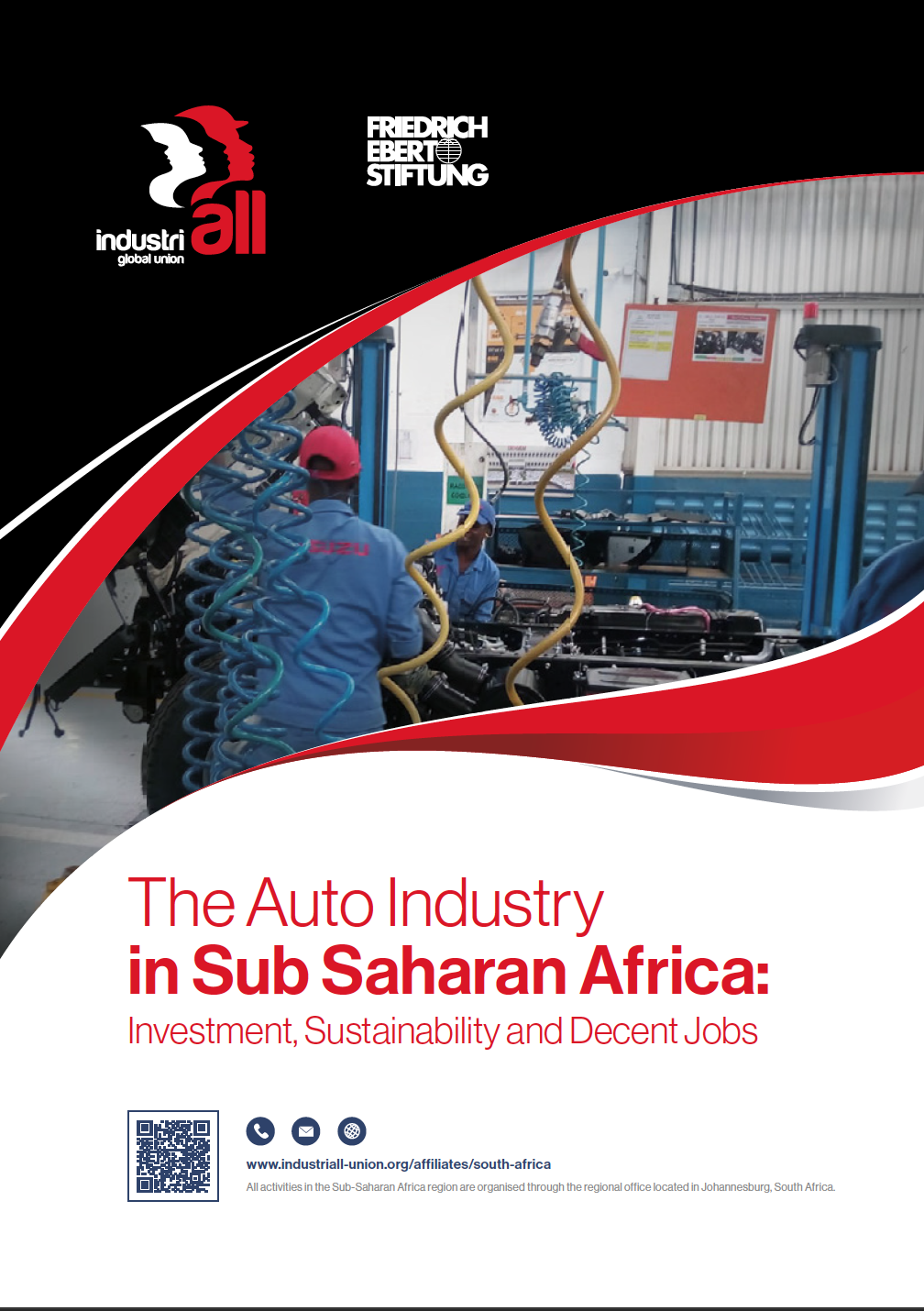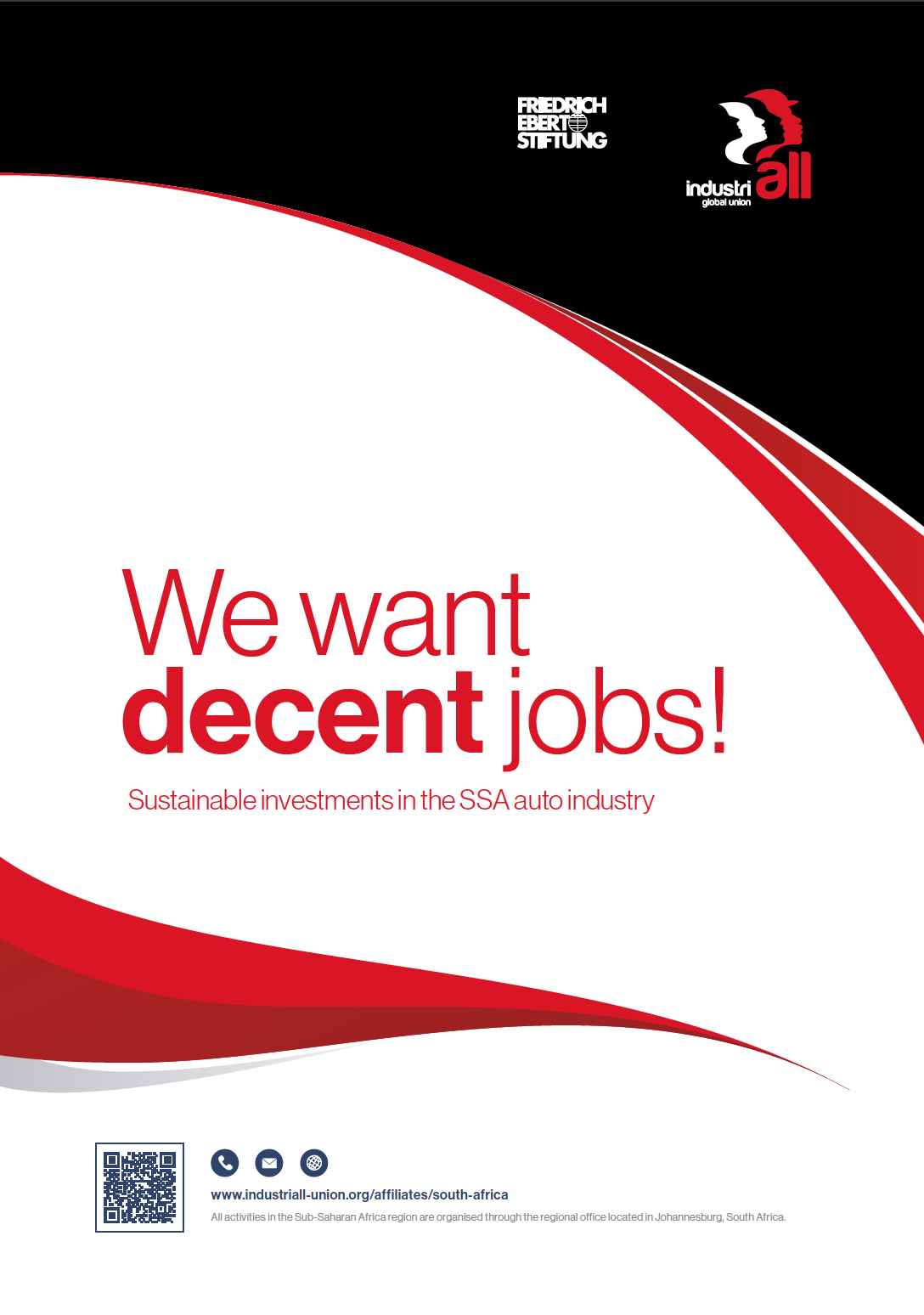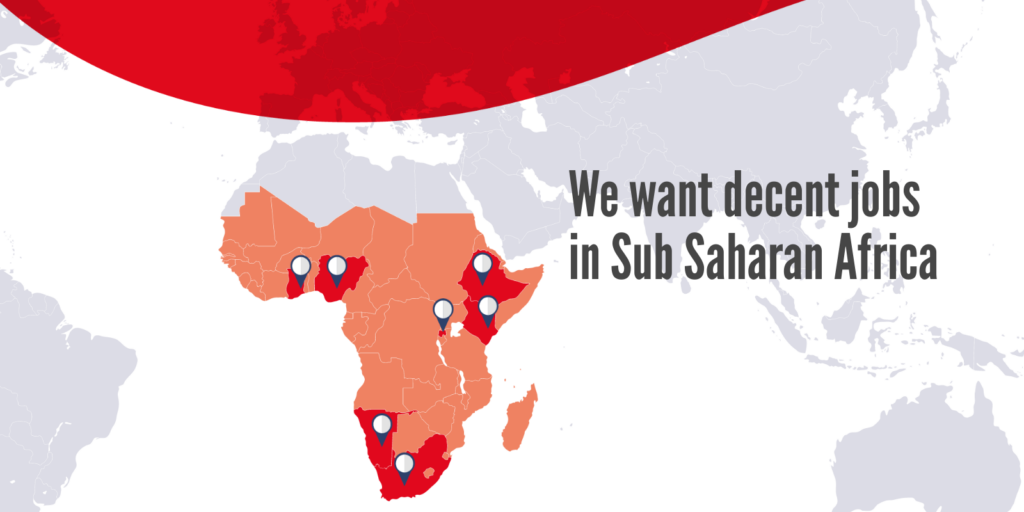3 March, 2021Report confirms unions in Sub Saharan Africa want sustainable investments in the auto industry that create decent jobs, reduce unemployment and inequality, and contribute towards ending poverty.
According to a research report, The auto sector in Sub Saharan Africa: Investment, sustainability and decent jobs , commissioned by IndustriALL Global Union and the Friedrich Ebert Stiftung, IndustriALL affiliates in the region who organize auto workers are well aware that proper strategies are required to turn potential new investments announced by big auto companies into new opportunities for people and societies.
| REPORT | PAMPHLET |
 |  |
| The auto industry in Sub Saharan Africa: Investment, sustainability and Decent Jobs | We want decent jobs! Sustainable investment in the SSA auto industry |
According to the report industrial policy strategies in most African countries include the auto sector. This is particularly true for Ghana, Ethiopia, Kenya, Namibia, Nigeria, Rwanda, and South Africa. Traditional industrial policies on auto manufacturing are aimed at attracting foreign direct investment through incentives that include tax exemptions, and establishment of special economic zones. In this context, some countries have signed agreements with major global auto players that include VW, Nissan, BMW, Toyota, and others.
Some countries and entrepreneurs try to go beyond the normal pattern and invest in genuine local brands and products. Ethiopia and Rwanda are exploring the production of electric vehicles. The report emphasizes that the effectiveness of the investments depends on “triggering local development and ensuring that any economic growth will have shared local benefits, create linkages with local economic activities, and generate quality employment opportunities.”
However, the region continues to face structural issues that include poor infrastructure, massive imports of used vehicles, skills deficits, financial instability, and unreliable energy supplies. Further, the Covid-19 pandemic has delayed the implementation of most of the investment plans.
Unions interviewed in the report say they want to fight the precarious nature of the industry to ensure that there are more permanent decent jobs to reverse the current trend. For example, in Nigeria over 70 per cent of the workforce in the auto sector is employed as precarious workers on a contract basis. This is the case in most of the other countries. The unions also want the auto employers to pay living wages.
Social and tri-partite dialogue are flagged in the report as important platforms for industrial policy engagement. This opens opportunities for targeted and joint policies regarding skills, working conditions, occupational health and safety and many other important items. Moreover, the coverage of collective bargaining needs to be expanded at all levels.
Paule France Ndessomin, IndustriALL regional secretary for Sub Saharan Africa says:
“This is an important report because it brings out how unions can influence job creation in the auto sector through policy engagement. Unions can also work together in solidarity in the region to address the common issues they are facing and participate in networks to improve wages and working conditions.”
